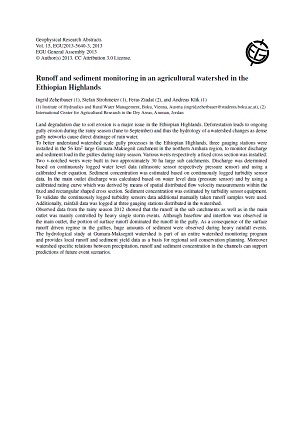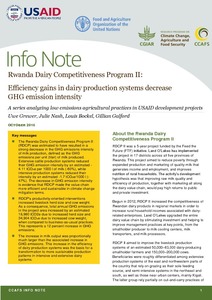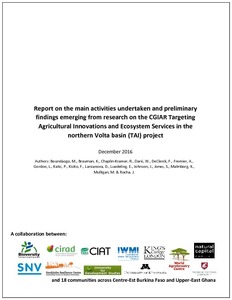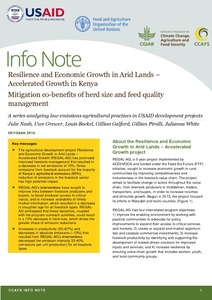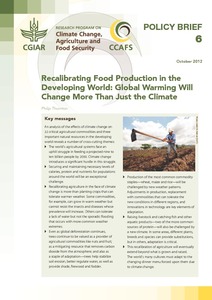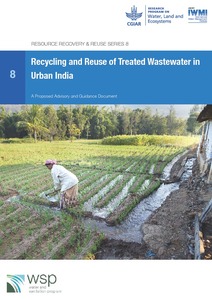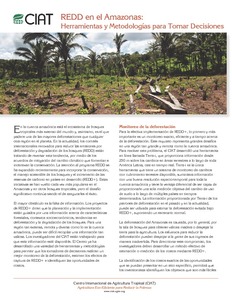Runoff and sediment monitoring in an agricultural watershed in the Ethiopian Highlands
Land degradation due to soil erosion is a major issue in the Ethiopian Highlands. Deforestation leads to ongoing gully erosion during the rainy season (June to September) and thus the hydrology of a watershed changes as dense gully networks cause direct drainage of rain water. To better understand watershed scale gully processes in the Ethiopian Highlands, three gauging stations were installed in the 56 km2 large Gumara-Maksegnit catchment in the northern Amhara region, to monitor discharge and sediment load in the gullies during rainy season.

